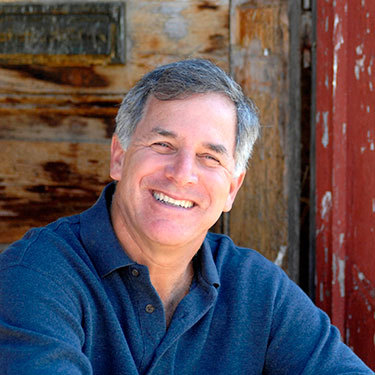
How did you first get involved in conservation issues?
Stonyfield actually got its start as an organic farming school, on a small New Hampshire farm. We were on a mission to help family farms survive, keep food and food production healthy, and help protect the environment. But the school needed funding, so we started commercially manufacturing and selling the delicious yogurt that Samuel Kaymen had perfected with the milk from the school’s cow. For us, conservation came first, and the yogurt was just a way to support that work. We’ve come a long way since then, but conservation is still at the heart of everything we do at Stonyfield.
What’s so special about the people and places of New England?
New England has some of the most beautiful and incredible natural places – the majestic White Mountains of New Hampshire, the stunning beauty of our many lakes and rivers, and a gorgeous coastline. These special places are home to many unique species and ecosystems, but they’re also right next door to approximately 15 million people. We’re lucky to have such natural beauty right nearby, but the pressure of having so many people in this region means we need to pay special attention to conserving these natural resources if we want future generations to be able to enjoy them.
What can we each do to help get more New England-grown food to New England tables?
People today are more interested than ever before in knowing where their food comes from and how it was grown. Fortunately, the market has responded and consumers also have more opportunities than ever before to seek out organic and local food at the farmers market or the grocery store. Stonyfield is working to strengthen the local agricultural economy by trying to get as much of our milk from the Northeast region as possible, and offering incentives for new organic dairy farmers to start up in this region. Today we support nearly 200 organic dairy farms across New England through our milk purchases. At a more local level, we offer all employees the opportunity to use payroll deduction to participate in a local organic Community Supported Agriculture program that delivers right to our office once a week.
While we know that markets are critical tools for improving the sustainability of the food system, we also know that farmers in our region face many challenges that need to be addressed by improving state and federal policy. That’s why we’re such big fans of the work CLF is doing to advance sustainable agriculture in the Northeast, because it effectively leverages both policy and markets to find solutions for improving the sustainability of agriculture in this region.
Why do you choose to support CLF? What sets CLF apart from other conservation organizations?
Name any of the most pressing environmental challenges facing New England in the past two decades, and CLF has been there, leading the way with innovative solutions and pragmatic tactics for getting things done. Not only is CLF leading the way on important issues like the fight against New Hampshire’s costly and polluting coal-powered power plants – they’re also working to make sure that we have the right policies to encourage clean energy alternatives in its place. CLF can do this because they have a combination of a talented, dedicated staff and a unique focus on our region.
